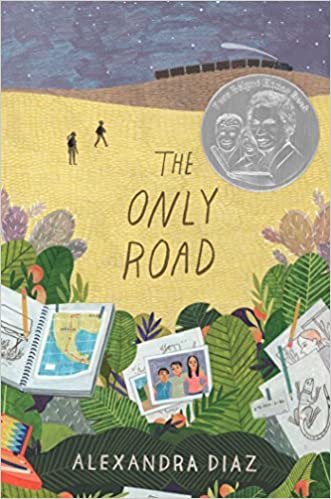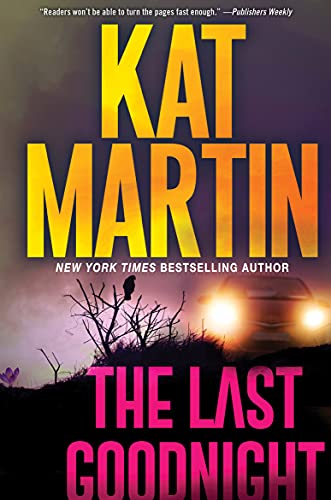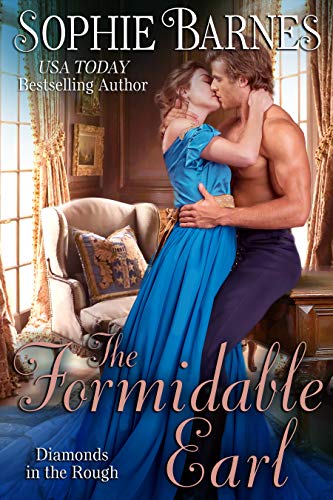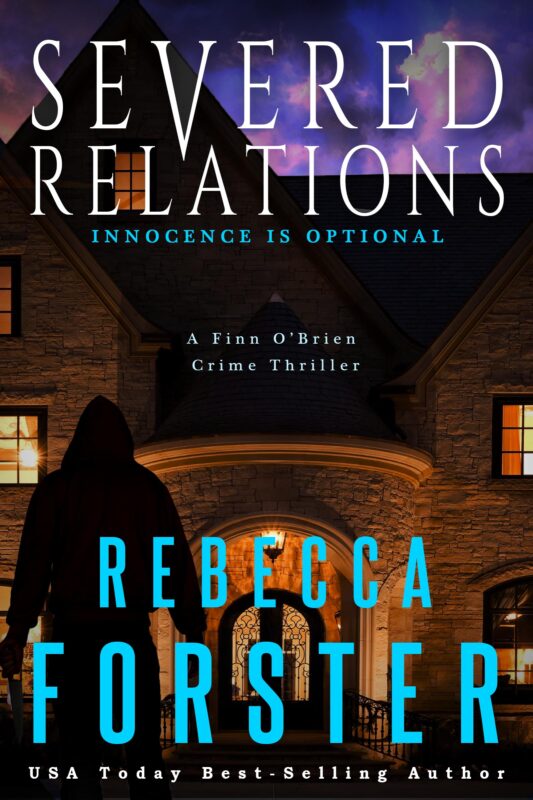Listen, my children, and you shall hear . . .
July 13, 2021 by Bethlehem Writers Group in category From a Cabin in the Woods by Members of Bethlehem Writers Group tagged as Bethlehem Writers Group LLC, BWG, BWG Roundtable, Carol L. Wright, history, Longfellow, Paul Revere
April always takes me back to my childhood in Acton, Massachusetts, right next door to Concord (pronounced more like “conquered” than like “concorde”). Growing up there imbues a child with both a sense of history and an appreciation of literature.
Concord is famously the home of many legendary authors including Ralph Waldo Emerson (1803-82), Nathaniel Hawthorne (1804-64), Henry David Thoreau (1817-62), William Ellery Channing (1818-1901), Louisa May Alcott (1832-88), and Harriet Lothrop, who wrote as Margaret Sidney, (1844-1924). Even today, well-known authors are drawn there, including Doris Kearns Goodwin, Alan Lightman, and Gregory Maguire. What a wonderful place to grow up. Writers can, as we know, make us see the world in new ways.
Equally ingrained in the culture of the area is its history. There, kids don’t get a “Spring Break” from school. Instead they get a February vacation (the week including Presidents Day) and April vacation (the week including Patriots’ Day.)
What is Patriots’ Day, you ask? It is the commemoration of the Battles of Lexington and Concord—events with local celebrations that rival or exceed Independence Day. Over time, those battles have been the inspiration for many of the region’s poets, not least of whom was lyric poet Henry Wadsworth Longfellow (1807-82) who immortalized the “midnight ride of Paul Revere” in his poem, “Paul Revere’s Ride.”
Listen, my children, and you shall hear
Of the midnight ride of Paul Revere
On the 18th of April, in Seventy-five:
Hardly a man is now alive
Who remembers that famous day and year. . .
That’s 1775, when British General Thomas Gage, who commanded the British troops occupying Boston, ordered 700 Redcoats to scour the countryside for the radical leaders Sam Adams and John Hancock, rumored to be staying thirteen miles away in Lexington, and to discover the location of stores of munitions and supplies for local militias, rumored to be hidden in Concord, seven miles farther on.
Colonial spies learned of Gage’s orders and planned to warn Adams, Hancock, and the surrounding towns. That night, two lanterns were hung in the steeple of the Old North Church, signaling the route British troops would take out of Boston.
“One if by land, and two if by sea;
And I on the opposite shore will be,
Ready to ride and spread the alarm
Through every Middlesex village and farm,
For the country-folk to be up and to arm.” . . .
And they were. In Middlesex County towns, Minutemen—so named because they were ready to rise to arms on a minute’s notice—were alerted not just by Paul Revere but by William Dawes, who took a different route out of Boston to avoid the risk of both of them being captured at once.
It was one by the village clock,
When he galloped into Lexington. . . .
Revere and Dawes met at Lexington, arriving about a half hour apart, and warned Adams and Hancock who quickly departed. The two couriers then set out for Concord. Fortunately for history, they were joined by Dr. Samuel Prescott who was out late, returning home to Concord after a courting visit with a young lady in Lexington.
Just as the sky began to lighten on the morning of April 19, an advance party of British troops, led by Major John Pitcairn, arrived in Lexington. A militia of seventy-seven armed colonists stood on the town green. They faced each other down, both sides having been ordered not to fire. Pitcairn ordered the colonists to disperse, and they began to do so. Then a shot rang out. Its source is unknown, but its effect was that the British opened fire, killing seven Minutemen. One mortally wounded patriot crawled home from the green, only to die on his doorstep.
It was two by the village clock,
When he came to the bridge in Concord town. . . .
Despite Longfellow’s heroic telling, before Revere could reach Concord, he was arrested by the British and held for questioning before being released hours later. Dawes and Prescott eluded the British, but Dawes lost his horse and walked back to Lexington. It was Prescott who, knowing the terrain, was able to get through to alert the patriots in Concord. He then traveled on to Acton while his brother, Abel, alerted other towns.
And one was safe and asleep in his bed
Who at the bridge would be first to fall,
Who that day would be lying dead,
Pierced by a British musket-ball.
Captain Isaac Davis, the captain of the Acton Minutemen, had been preparing his land for spring planting and left his plow in his field the evening before. After hearing the alarm, at least thirty of his force of forty Minutemen (including a young drummer and fifer) mustered there. Besides being a farmer, Davis was a metal worker who had fashioned bayonets for his militiamen. They were ready for close combat if need be. In the early morning hours of April 19, they marched with their arms along a nearly seven-mile trail (now followed each Patriots’ Day by local residents, scouts, and history buffs) to the home of Major John Buttrick of the Concord militia. The Buttrick farm served as the meeting place for the approximately 400 Minutemen from various towns who had responded to the call. Between the Buttrick home and the center of Concord a half mile away, flowed the narrow Concord River spanned by a wooden bridge.
By eight o’clock, the British arrived in Concord. Frustrated by not being able to find the stash of weapons and supplies, they went into houses, dragged out furniture, wooden bowls, and anything else flammable, and created a bonfire on the village green. The Minutemen saw smoke rising above the bare trees and feared the British would set the entire town afire.
The Minutemen advanced toward the bridge to cross with orders not to fire unless fired upon. Captain Davis volunteered his men for the front line because they had bayonets, saying, “I haven’t a man who is afraid to go.”
A small company of the British forces had crossed the bridge as the colonists approached. Seeing the combined militia making chase, the British retreated back across the bridge, prying up some of its planks to delay the Minutemen’s crossing. Once across the bridge, the British turned and fired on the undaunted Minutemen. Isaac Davis and another young Acton Minuteman, Abner Hosmer, fell—the first to die at the Battle of Concord.
But instead of turning and scattering as they had in Lexington, the assembled militias held their positions. Captain Buttrick shouted, “Fire, fellow soldiers, for God’s sake fire!” They fired on the British–the first time colonists had fired a shot for liberty. It was the British who turned and ran.
You know the rest. In the books you have read,
How the British Regulars fired and fled,—
How the farmers gave them ball for ball,
From behind each fence and farmyard-wall,
Chasing the red-coats down the lane,
Then crossing the fields to emerge again
Under the trees at the turn of the road,
And only pausing to fire and load.
Longfellow put it well. The British, never expecting armed resistance, reassembled and marched in formation back to Boston. The colonists pursued them, shooting from behind trees and stone walls. When the day was over, forty-nine colonists had died, but they had killed 73 soldiers of the finest army in the world.
More importantly, the Revolutionary War had begun.
Longfellow was not the only poet of his generation inspired by these events. Concord resident Ralph Waldo Emerson wrote “Concord Hymn,” a portion of which is inscribed on the base of a statue of a Minuteman which stands at the Old North Bridge.
By the rude bridge that arched the flood
Their flag to April’s breeze unfurled,
Here once the embattled farmers stood
And fired the shot heard round the world.
Both poets highlight the heroic acts of the colonists, heaping immortal praise on those who fought to free Americans from the yoke of the tyranny of King George III. But there is a portion of one more poem, by the lesser-known poet James Russell Lowell (1819-1891), that struck me the hardest the first time I visited the Old North Bridge as a young girl—so much so that I memorized it that day. It’s not on the tall Minuteman monument erected in 1875 that sits on the colonists’ side of the bridge, nor the obelisk erected in 1836 and placed on the other side of the river to commemorate the battle. Rather it is engraved on a slate slab attached to a stone wall on the town side of the bridge. Overlooked by most tourists, it is flanked by two small British flags. It marks the grave of two unnamed British soldiers who died at that bridge, far from their homes, on April 19, 1775.
They came three thousand miles, and died,
To keep the Past upon its throne:
Unheard, beyond the ocean tide,
Their English mother made her moan.
Standing there, a chill ran through me as I read it. I then realized that the Minutemen weren’t the only patriots in that battle. That there are two sides to every conflict, and it is good to remember that both deserve to be understood.
Writers can, after all, make us see the world in new ways.
*First published in the Spring 2020 Bethlehem Writers Roundtable, Literary Learnings. Reprinted with permission.

Carol L. Wright is a former book editor, domestic relations attorney, and adjunct law professor. Her debut mystery, Death in Glenville Falls, came out in September of 2017 and was named a finalist for both the 2018 Killer Nashville Silver Falchion Award and for the 2018 Next Generation Indie Book Awards. In addition, Carol is the author of several short stories in various literary journals and award-winning anthologies. Many of her favorites appear in A Christmas on Nantucket and other stories. She is a founding member of the Bethlehem Writers Group, a life member of Sisters in Crime and the Jane Austen Society of North America, and a member of Pennwriters, the Greater Lehigh Valley Writers Group, and SinC Guppies. She is married to her college sweetheart, and lives in the Lehigh Valley of Pennsylvania with their rescue dog, Mr. Darcy, and a clowder of cats. You can learn more on Carol’s website, or by following her Facebook page.
Some of Carol’s Books
(Click on the covers for more information. Hover over the covers for buy links.)
Affiliate Links
A Slice of Orange is an affiliate with some of the booksellers listed on this website, including Barnes & Nobel, Books A Million, iBooks, Kobo, and Smashwords. This means A Slice of Orange may earn a small advertising fee from sales made through the links used on this website. There are reminders of these affiliate links on the pages for individual books.
Search A Slice of Orange
Find a Column
Archives
Featured Books
BLACK FOOD: STORIES, ART & RECIPES FROM ACROSS THE AFRICAN DIASPORA
Beautiful, rich, and groundbreaking . . .
More info →THE LAST GOODNIGHT
With another body turning up, one woman is hot on the trail of a killer . . .
More info →THE FORMIDABLE EARL
He's breaking the rules for one woman, and coming dangerously close to falling in love…
More info →SEVERED RELATIONS
Detective Finn O'Brien catches the call: two kids and their nanny are dead behind the gates of Freemont Place.
More info →Newsletter
Contributing Authors
Search A Slice of Orange
Find a Column
Archives
Authors in the Bookstore
- A. E. Decker
- A. J. Scudiere
- A.J. Sidransky
- Abby Collette
- Alanna Lucus
- Albert Marrin
- Alice Duncan
- Alina K. Field
- Alison Green Myers
- Andi Lawrencovna
- Andrew C Raiford
- Angela Pryce
- Aviva Vaughn
- Barbara Ankrum
- Bethlehem Writers Group, LLC
- Carol L. Wright
- Celeste Barclay
- Christina Alexandra
- Christopher D. Ochs
- Claire Davon
- Claire Naden
- Courtnee Turner Hoyle
- Courtney Annicchiarico
- D. Lieber
- Daniel V. Meier Jr.
- Debra Dixon
- Debra H. Goldstein
- Debra Holland
- Dee Ann Palmer
- Denise M. Colby
- Diane Benefiel
- Diane Sismour
- Dianna Sinovic
- DT Krippene
- E.B. Dawson
- Emilie Dallaire
- Emily Brightwell
- Emily PW Murphy
- Fae Rowen
- Faith L. Justice
- Frances Amati
- Geralyn Corcillo
- Glynnis Campbell
- Greg Jolley
- H. O. Charles
- Jaclyn Roché
- Jacqueline Diamond
- Janet Lynn and Will Zeilinger
- Jaya Mehta
- Jeff Baird
- Jenna Barwin
- Jenne Kern
- Jennifer D. Bokal
- Jennifer Lyon
- Jerome W. McFadden
- Jill Piscitello
- Jina Bacarr
- Jo A. Hiestand
- Jodi Bogert
- Jolina Petersheim
- Jonathan Maberry
- Joy Allyson
- Judy Duarte
- Justin Murphy
- Justine Davis
- Kat Martin
- Kidd Wadsworth
- Kitty Bucholtz
- Kristy Tate
- Larry Deibert
- Larry Hamilton
- Laura Drake
- Laurie Stevens
- Leslie Knowles
- Li-Ying Lundquist
- Linda Carroll-Bradd
- Linda Lappin
- Linda McLaughlin
- Linda O. Johnston
- Lisa Preston
- Lolo Paige
- Loran Holt
- Lynette M. Burrows
- Lyssa Kay Adams
- Madeline Ash
- Margarita Engle
- Marguerite Quantaine
- Marianne H. Donley
- Mary Castillo
- Maureen Klovers
- Megan Haskell
- Melanie Waterbury
- Melisa Rivero
- Melissa Chambers
- Melodie Winawer
- Meriam Wilhelm
- Mikel J. Wilson
- Mindy Neff
- Monica McCabe
- Nancy Brashear
- Neetu Malik
- Nikki Prince
- Once Upon Anthologies
- Paula Gail Benson
- Penny Reid
- Peter Barbour
- Priscilla Oliveras
- R. H. Kohno
- Rachel Hailey
- Ralph Hieb
- Ramcy Diek
- Ransom Stephens
- Rebecca Forster
- Renae Wrich
- Roxy Matthews
- Ryder Hunte Clancy
- Sally Paradysz
- Sheila Colón-Bagley
- Simone de Muñoz
- Sophie Barnes
- Susan Kaye Quinn
- Susan Lynn Meyer
- Susan Squires
- T. D. Fox
- Tara C. Allred
- Tara Lain
- Tari Lynn Jewett
- Terri Osburn
- Tracy Reed
- Vera Jane Cook
- Vicki Crum
- Writing Something Romantic
Affiliate Links
A Slice of Orange is an affiliate with some of the booksellers listed on this website, including Barnes & Nobel, Books A Million, iBooks, Kobo, and Smashwords. This means A Slice of Orange may earn a small advertising fee from sales made through the links used on this website. There are reminders of these affiliate links on the pages for individual books.

































































